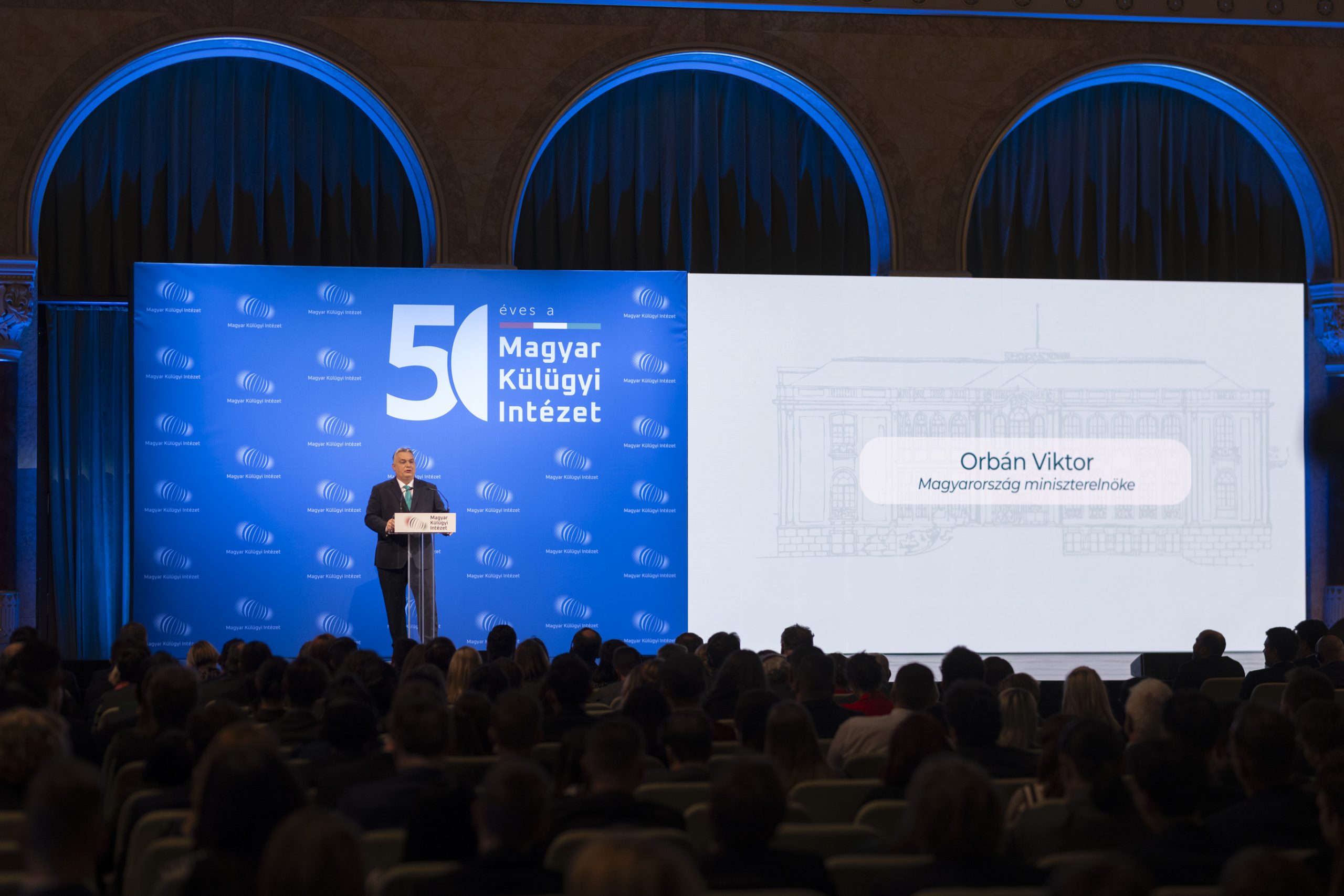The Hungarian Institute of International Affairs celebrated its 50th anniversary with a grand conference on December 4th, 2023. Participants, former and current leaders, researchers, and staff, along with invited guests, commemorated the Institute’s past and set goals for the future in a fitting manner.
Over the past 50 years, the Hungarian Institute of International Affairs (MKI/HIIA) has been a shaping force in Hungarian foreign policy thinking, despite changing legal statuses and structures. It has consistently engaged in active research, analysis, and think tank activities through its domestic and international network. The restructured MKI now contributes to the highest level of strategic decision-making in Hungarian foreign policy, directly supporting the Prime Minister’s work.
At the MKI’s 50th anniversary celebration, Prime Minister Viktor Orbán, Péter Szijjártó, Minister of Foreign Affairs and Trade and Balázs Orbán, the Prime Minister’s political director, delivered speeches.
The event was opened by Dr. Gladden Pappin, President of the MKI. In his lecture entitled “Connectivity in the Changing World Order,” he emphasized the unsustainable nature of the Western approach to connectivity over the past three decades. He stressed the need for a cognitive revolution to counter distorted ideas and ideologies associated with globalization.
Dr. Gladden Pappin added: “Hungary, along with many countries outside Europe, is prepared for a new global situation, as the unipolar world led by America in the 1990s has ended.”
Balázs Orbán, the Prime Minister’s political director, delivered an introductory lecture on the tasks and challenges of the Hungarian Institute of International Affairs, emphasizing the need for a Hungarian strategy of connectivity.
The political director pointed out that after 2010, there was a demand to shape Hungarian foreign policy independently based on its own values and interests, requiring a new way of thinking.
Addressing the analysts of the MKI, he emphasized the importance of analyses reflecting Hungarian interests, not just describing global events.
FM Péter Szijjártó spoke on the “Multivectoral Hungarian Foreign Policy,” highlighting the political support for Hungary and the importance of sovereignty in the current global context. He emphasized that Hungary has always faced pressure but has consistently proven itself right.
The speeches were followed by insightful panel discussions involving researchers, current and former leaders of the institute, and invited experts.
The closing speech was delivered by the Prime Minister of Hungary, Viktor Orbán, who emphasized Hungary’s need to pursue ambitious goals in foreign policy and not shy away from conflicts. He concluded by stating that Hungary, despite its size, is capable of pursuing an independent foreign policy.
Orbán stressed the importance of open and direct speech in forming alliances based on shared interests, asserting that recognizing and acting upon national interests is crucial in every situation.

